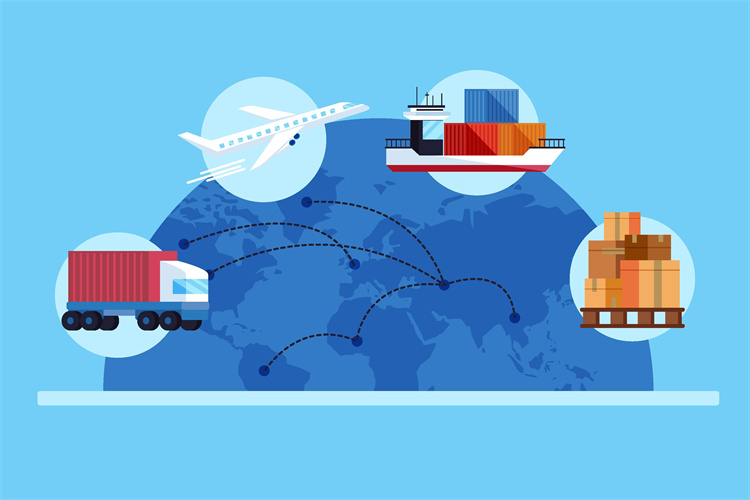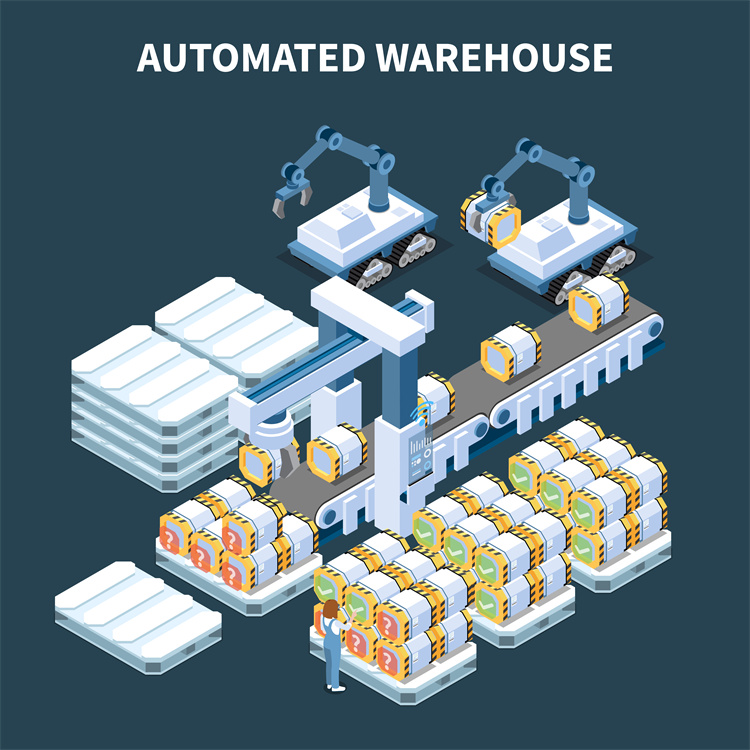Top Constraints and Solutions to Supply Chain’s Long-term success

Supply chain management drives business success. Companies face challenges that hinder Supply Chain’s long-term success. The survey by Gartner highlights constraints like access to labor and excessive energy costs. These obstacles demand strategic solutions. Leaders must focus on immediate risks to motivate action. Businesses should leverage short-term actions for immediate impacts. This approach secures stakeholder buy-in and sets the stage for future growth. Embracing innovative solutions ensures resilience and efficiency in supply chains. Companies must prioritize adaptability and continuous improvement to thrive in a competitive landscape.
Inventory Optimization for Supply Chain’s long-term success
Inventory optimization plays a crucial role in achieving Supply Chain’s long-term success. Efficient inventory management ensures that businesses maintain the right balance between supply and demand while minimizing costs. The survey conducted by Gartner highlights the importance of addressing these constraints to secure a competitive edge.
Importance of Inventory Management in Supply Chain’s long-term success
Balancing Supply and Demand
Balancing supply and demand is essential for maintaining smooth operations. Companies must accurately forecast demand to avoid overstocking or stockouts. Effective demand forecasting helps businesses meet customer needs without incurring unnecessary costs. This balance enhances customer satisfaction and boosts profitability.
Reducing Holding Costs
Reducing holding costs is another critical aspect of inventory management. Excess inventory ties up capital and increases storage expenses. Businesses can optimize their inventory levels by implementing cost-effective strategies. This approach frees up resources for other essential operations, contributing to overall financial health.
Techniques for Optimization
Just-In-Time (JIT) Inventory
Just-In-Time (JIT) inventory is a powerful technique for minimizing waste and improving efficiency. JIT focuses on receiving goods only when needed for production or sales. This method reduces holding costs and ensures that inventory aligns with current demand. Implementing JIT requires precise coordination with suppliers to maintain seamless operations.
Use of Technology and Software
Technology and software play a vital role in inventory optimization. Advanced platforms like the NEO Platform capture multi-party variables such as lead times and manufacturing frequency. These systems use real-time data and advanced algorithms to adjust inventory levels automatically. This technology-driven approach enhances decision-making and improves supply chain efficiency.
Enhancing Supplier Relationships
Enhancing supplier relationships is crucial for Supply Chain’s long-term success. Strong partnerships with suppliers lead to improved efficiency and innovation. The survey by Gartner highlights the importance of addressing constraints like access to labor and excessive energy costs. Building robust supplier relationships can help overcome these challenges.
Building Strong Partnerships
Communication and Collaboration
Effective communication forms the foundation of strong supplier partnerships. Clear and consistent dialogue ensures that both parties understand expectations and requirements. Collaboration fosters trust and encourages joint problem-solving. Companies like Toyota have demonstrated success through collaborative working with strategic suppliers. This approach enhances mutual understanding and aligns goals for better outcomes.
Long-term Contracts and Agreements
Long-term contracts provide stability and predictability in supplier relationships. These agreements secure supply and protect against market fluctuations. Companies benefit from negotiated terms that optimize costs and ensure quality. Kellogg's K Partner Advantage program exemplifies the value of long-term partnerships. This program focuses on joint business plans and operational improvements, unlocking untapped potential.
Supplier Performance Evaluation
Key Performance Indicators (KPIs)
KPIs serve as essential tools for evaluating supplier performance. These metrics measure efficiency, quality, and reliability. Regular assessment of KPIs helps identify areas for improvement. Companies can set clear goals and track progress over time. Successful strategies involve setting specific targets and monitoring results. This process drives continuous improvement and strengthens supplier relationships.
Regular Audits and Feedback
Regular audits ensure compliance with agreed standards and practices. These evaluations provide insights into supplier capabilities and performance. Feedback sessions offer opportunities for constructive dialogue. Companies can address issues and share best practices. Continuous process improvement, inspired by Kaizen principles, enhances supplier performance. This approach reduces waste and mitigates supply chain risks.
Case Studies:
Toyota: Collaborative working with strategic suppliers leads to enhanced relationships and innovation.
Kellogg: The K Partner Advantage program realizes greater value through joint business plans and operational improvements.
Embracing Technological Advancements

Technological advancements play a pivotal role in achieving Supply Chain’s long-term success. The survey by Gartner highlights that leveraging technology can address constraints like access to labor and excessive energy costs. Implementing cutting-edge solutions ensures resilience and efficiency in supply chains.
Automation and Robotics
Automation and robotics revolutionize supply chain operations. These technologies streamline processes and enhance productivity.
Streamlining Operations
Automation streamlines operations by performing repetitive tasks efficiently. Automated systems handle tasks like sorting, packaging, and transporting goods. This efficiency reduces operational bottlenecks and accelerates delivery times. Businesses achieve faster turnaround and improved customer satisfaction.
Reducing Human Error
Robotics significantly reduce human error in supply chain processes. Machines perform tasks with precision and consistency. This accuracy minimizes mistakes and enhances product quality. Companies benefit from reduced rework and waste, leading to cost savings and improved profitability.
Data Analytics and AI
Data analytics and AI transform supply chain management. These technologies provide valuable insights and optimize decision-making processes.
Predictive Analytics for Demand Forecasting
Predictive analytics enhances demand forecasting accuracy. Advanced algorithms analyze historical data and market trends. This analysis predicts future demand patterns with precision. Businesses align inventory levels with anticipated demand, reducing stockouts and overstock situations.
AI for Process Optimization
AI optimizes supply chain processes by identifying inefficiencies. Machine learning algorithms analyze data to uncover patterns and trends. This analysis suggests improvements in areas like inventory management and logistics. Companies implement AI-driven strategies to enhance efficiency and reduce costs.
Expert Testimony:
Industry Experts emphasize the importance of technology in building resilient supply chains. "Technology is going to be one of the single biggest assets Supply Chain leaders will have in building resilience. Implementing technological advances that helps their teams and their customers gain value is imperative."
Establishing Green Initiatives

Supply chain leaders must prioritize green initiatives to achieve long-term success. Sustainable practices and compliance with regulations play a crucial role in this endeavor. Companies that embrace eco-friendly strategies gain a competitive edge and contribute to environmental preservation.
Sustainable Practices
Adopting sustainable practices enhances supply chain resilience and reduces environmental impact. Companies must focus on reducing carbon footprints and utilizing eco-friendly packaging to meet sustainability goals.
Reducing Carbon Footprint
Reducing carbon footprints involves minimizing greenhouse gas emissions. Companies can achieve this by optimizing transportation routes and using energy-efficient technologies. Implementing renewable energy sources further decreases reliance on fossil fuels. These actions not only benefit the environment but also improve brand reputation.
Eco-friendly Packaging
Eco-friendly packaging reduces waste and conserves resources. Companies should use biodegradable or recyclable materials for packaging. This approach aligns with consumer preferences for sustainable products. Businesses that prioritize eco-friendly packaging demonstrate commitment to environmental responsibility.
Compliance with Regulations
Compliance with environmental regulations ensures legal adherence and mitigates risks. Companies must understand relevant laws and implement effective compliance measures.
Understanding Environmental Laws
Understanding environmental laws requires thorough research and analysis. Companies must stay informed about legislation such as the Modern Slavery Act and the California Supply Chain Transparency Act. These laws mandate the assessment and prevention of human rights and environmental violations. Knowledge of these regulations helps businesses avoid legal penalties.
Implementing Compliance Measures
Implementing compliance measures involves establishing robust monitoring systems. Companies should conduct regular audits to ensure adherence to environmental standards. The UFLPA emphasizes enhanced due diligence in supply chains. Importers must provide evidence that goods are not produced with forced labor. Businesses that implement these measures protect themselves from legal repercussions and uphold ethical standards.
Gartner's research highlights the importance of addressing constraints like greenhouse gas emission reductions. Companies that leverage short-term actions for immediate impacts secure stakeholder buy-in. This strategy sets the stage for long-term success and sustainability.
JUSDA's Role in Supply Chain’s long-term success
Overview of JUSDA's Solutions
JUSDA provides comprehensive solutions that drive Supply Chain’s long-term success. The company excels in offering integrated supply chain services. These services connect manufacturers, dealers, and consumers seamlessly. JUSDA's platform enhances efficiency and reduces product loss throughout the distribution cycle. This approach boosts profitability for all stakeholders involved.
Integrated Supply Chain Services
JUSDA's integrated supply chain services utilize modern technologies. The JusLink smart supply chain incorporates the Internet of Things, cloud computing, and big data. These technologies break down silos between upstream and downstream enterprises. Information sharing becomes seamless across the entire supply chain. This integration ensures smooth operations and improved decision-making.
Technology-Driven Solutions
Technology-driven solutions form the backbone of JUSDA's offerings. The company uses advanced platforms to address constraints identified by the survey. JUSDA's solutions help manage labor access, energy costs, and capacity issues. These solutions enhance operational efficiency and reduce costs. JUSDA empowers businesses to adapt quickly to changing market conditions.

SMART JUSDA
Supply Chain Management Solution
Real-world Applications
JUSDA's real-world applications highlight its innovative approach. The company collaborates with partners to create high-quality logistics services. JUSDA's platform supports the orderly development of the entire industry. Effective supply chain management redistributes benefits among stakeholders. This approach ensures sustainable growth and success.
Measurable Outcomes
Measurable outcomes validate JUSDA's contributions to supply chain success. The company's solutions lead to reduced product loss and increased profitability. Stakeholders experience enhanced efficiency and improved decision-making. JUSDA's technology-driven approach sets the stage for long-term success. Businesses achieve resilience and adaptability in a competitive landscape.
Overcoming supply chain constraints requires strategic action. Companies must embrace inventory optimization, supplier relationships, and technological advancements. Green initiatives and solutions like those from JUSDA enhance resilience. Continuous improvement drives success. Businesses must adapt to changing conditions. Empowering teams to innovate ensures growth. Stakeholders demand immediate results. Leaders should focus on short-term actions for long-term gains. Gartner's research highlights the need for adaptability. Organizations that prioritize continuous learning thrive. Supply chain management demands proactive strategies. Embrace change to secure a competitive advantage.
See Also
Overcoming Global Supply Chain Growth Hurdles
Ensuring Success with Leading Supply Chain Efficiency Techniques
A Green Strategy for Addressing Supply Chain Challenges
Jusda: Achieving Supply Chain Resilience Excellence
Steering Through Transformation: Embracing Technology in Supply Chain
